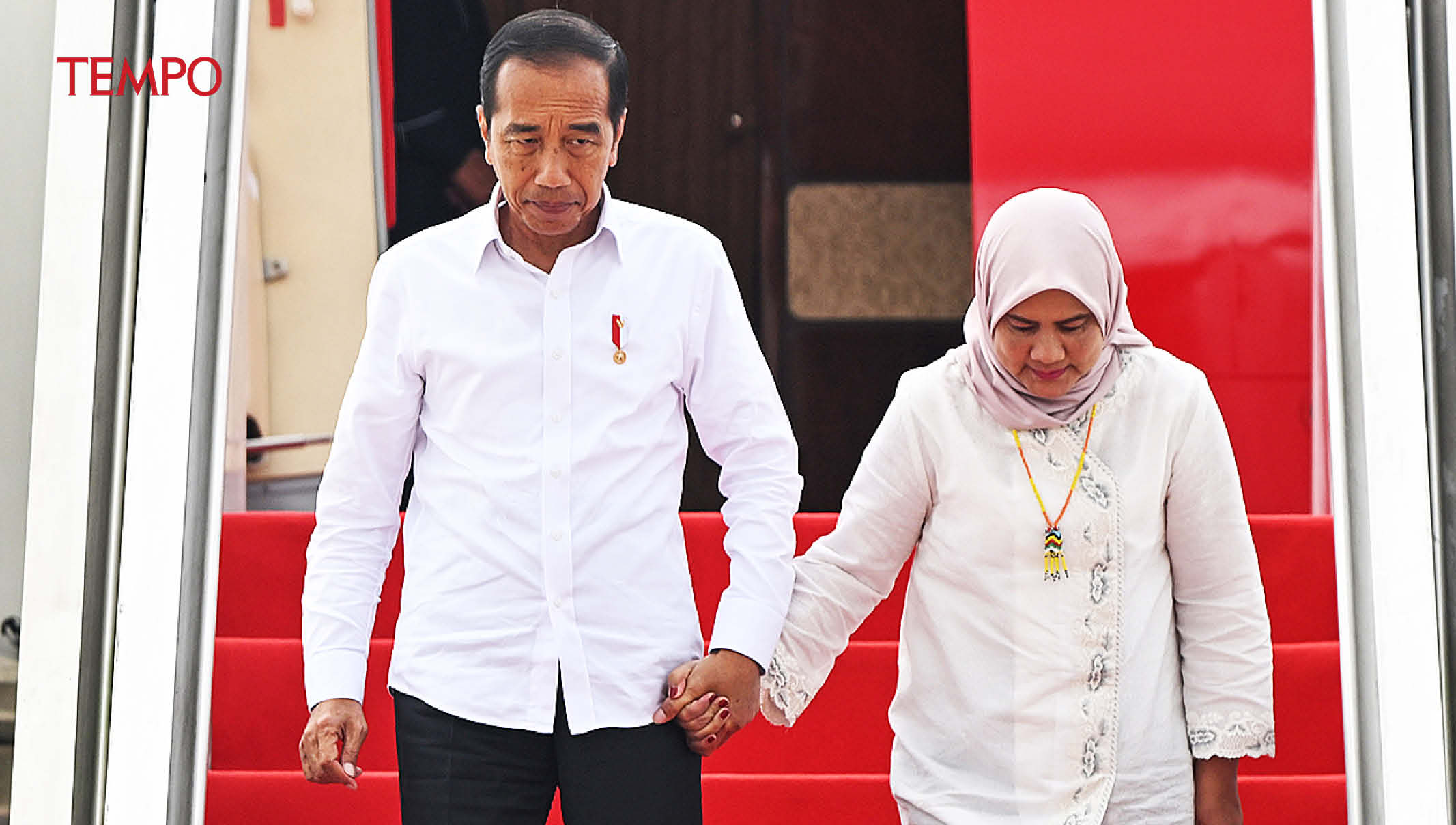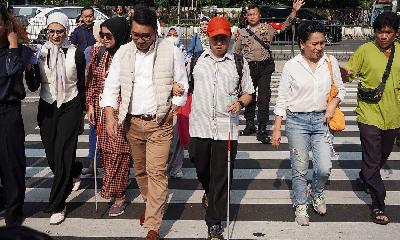President Jokowi’s Polished Images
Monday, October 14, 2024
Jokowi is like a king reluctant to relinquish his crown. Nearing retirement, he is still trying to improve his image.
arsip tempo : 174718041258.

RECENTLY, perhaps you have been exposed to social media content, ministerial speeches or news praising the programs and policies of President Joko Widodo. In the lead up to October 20, when Jokowi will retire after two presidential terms, there is a massive operation by the presidential office and ministries to polish his image.
After Prabowo Subianto is inaugurated as his replacement, Jokowi will go home to the city of Solo and be welcomed by 400,000 volunteers—76 percent of the city’s population. Huge banners with photos of Jokowi and his wife with the words “teacher of the nation” have been put up near the house in Karanganyar, where he will spend his retirement.
Ministers, in their speeches and media interviews, have been praising Jokowi as a president who has achieved many successes with his economic program. In Kompas' newspaper, Finance Minister Sri Mulyani speaks about the excellent way that the State Budget has provided funding for major infrastructure projects. Trade Minister Zulkifli Hasan has praised Jokowi as the best president because he was responsible for a 52-month trade surplus.
Self-praise is a manifestation of a lack of self-confidence, especially if this narcissism is funded in a public campaign using state budget. It is the job and constitutional mandate of a government to construct infrastructure, ensure economic growth and work for a trade surplus. There is no need for praise to legitimize it.
The fact is that during the Jokowi presidency, economic growth was only 4.2 percent, well below the target of 7 percent, and even less than that of the 10 years of the Susilo Bambang Yudhoyono administration, when it averaged 6 percent. And under Jokowi, the proportion of middle-class people fell from 21 percent to 17 percent as a result of a rising number of redundancies. Also, the trade surplus that Zulkifli Hasan is so proud of contributed only 0.66 percent to economic growth.
Jokowi’s infrastructure projects have left behind a mountain of debt. State-owned enterprises have been bankrupted as a result of being tasked with working on lighthouse projects. And the project to downstream the mining and mineral industries ended with the building of smelters that benefited China as the largest recipient of refined mineral products. Domestically, an abundance of natural resources did not inspire the growth of derivative industries or innovations that could have provided added value.
All of these problems are now being glossed over to highlight Jokowi’s successes. Using state funds, officials have launched campaigns that deny the democratic setbacks, the economic stagnation and Jokowi’s intervention in elections by manipulating the law and undermining the administration of the state. Attempting to sway public opinion like this is a crime.
This blurring of the facts will help Jokowi to maintain his popularity after he retires. As a politician who does not lead a party, Jokowi will use his massive supporters' network and popularity as a means of remaining relevant in politics. He will use his mass support to prevent the new government from causing problems to his policies.
In his conduct in the lead up to his retirement, Jokowi resembles United States President Donald Trump. Four weeks before the 2021 presidential election, Trump replaced the Supreme Court judge who would determine the winner of the election in the event of a dispute. When the Supreme Court ruled that he had lost, Trump refused to acknowledge his defeat, and did not attend Joe Biden’s inauguration.
Jokowi has repeatedly reshuffled his cabinet in his final months. He has tried to influence Prabowo Subianto to continue his massive and uncompleted projects. Through his trusted Minister Bahlil Lahadalia, Jokowi took control of the Golkar Party. He also intervened in the selection of the leadership of the Corruption Eradication Commission.
Hasan al-Mawardi, a governance expert from 11th-century Iraq who formulated the concept of a ‘social contract’ with the state, was right when he said that power is like a drug: the more it is enjoyed, the more the desire increases, and it makes people stupid.











